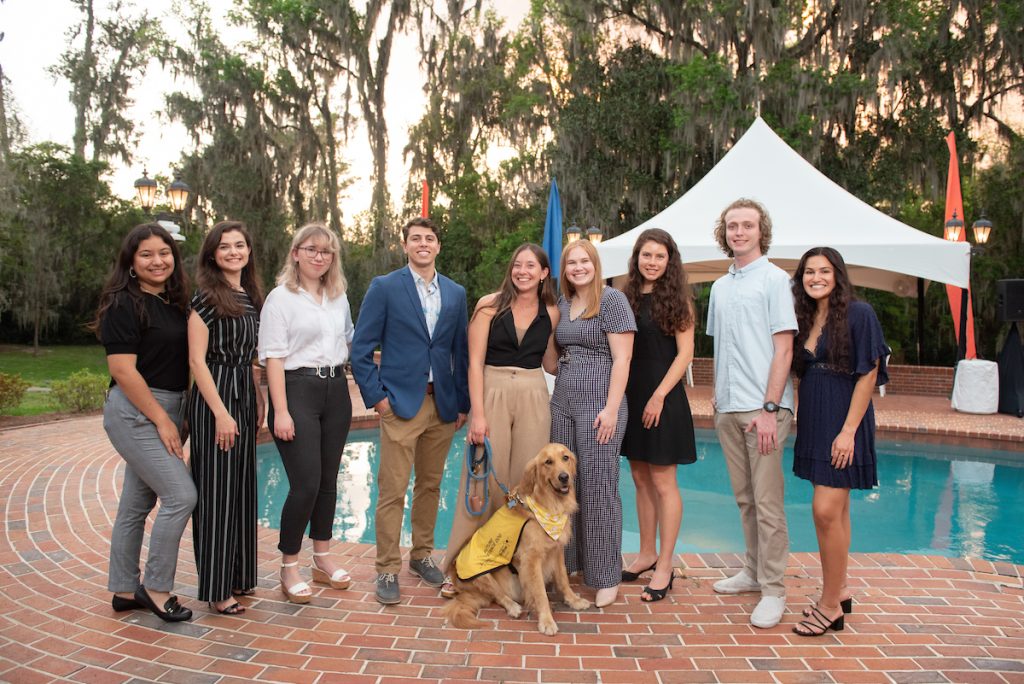- Homepage
- Service Animals
- Dos & Don’ts
Dos & Don’ts

Do’s
- Respect their Space: Service animals are working, so always give them and their handlers space to focus on their tasks without distractions.
- Speak to the Handler: If you need to communicate with the person, address them directly instead of interacting with the service animal.
- Ask for Permission: If you wish to pet or interact with the service animal, ask the handler first. Respect their decision, as some service animals are trained not to be distracted.
- Be Patient: If the handler seems busy or preoccupied, understand that the service animal might be performing a crucial task and they might not be able to engage in a conversation.
- Control Your Pets: If you have your own pet with you, keep it under control and at a safe distance from the service animal to avoid any disruptions.
- Use Elevators and Public Transport: If a service animal and its handler need to use an elevator or public transport, make space for them as needed.
- Follow Rules: In places where pets aren’t typically allowed, such as restaurants, understand that service animals are often exempt from these restrictions due to their necessary role.
- Offer Assistance if Needed: If you see the handler struggling or in need of help, you can offer assistance, but make sure to ask how you can assist before taking any action.
Don’ts
- Don’t Distract the Service Animal: Avoid making noises, gestures, or attempting to get the service animal’s attention as it could hinder their focus on their task.
- Don’t Feed the Service Animal: Service animals are on a specific diet and feeding them without permission can disrupt their routine and health.
- Don’t Assume It’s a Pet: Always assume that a dog (or other animal) with a harness or other service gear is a working animal, not a pet.
- Don’t Stare or Point: Staring at the service animal might make the handler uncomfortable. Treat them as you would any other person.
- Don’t Ask Intrusive Questions: Avoid asking personal questions about the handler’s disability or medical condition. It’s not appropriate and can invade their privacy.
- Don’t Touch the Service Animal Without Permission: Some service animals are trained to respond to touch, but always ask before petting or touching them.
- Don’t Be Offended: If the handler declines your offer to interact with the service animal or seems distant, it’s not personal. They might be focused on their task.
- Don’t Assume All Disabilities Are Visible: Service animals are not just for physical disabilities. Some are trained to assist people with various invisible disabilities, such as anxiety or diabetes.
Remember that the primary goal when interacting with individuals with service animals is to respect their needs, privacy, and the work of the service animal. Every person’s preferences might vary, so being polite, understanding, and considerate is key.
Inquiries by Event Managers
When it is not obvious what service an animal provides, only limited inquiries are allowed. Only Authorized UF personnel (full-time UF employees designated as the person in charge of the event, activity, or facility) may ask two questions:
- Is the dog a service animal required because of a disability? (Never ask what the disability is!)
- What work or task is the dog trained to perform?
Maintaining Control of Service Animals
The ADA requires that service animals be under the control of the handler at all times and be harnessed, leashed, or tethered unless these devices interfere with the services animal’s work or the individual’s disability prevents them from using these devices.
Do not ask the person what their disability is or for medical documentation. The dog does not require any training documentation and do not ask that the dog or miniature horse demonstrate the task or work.
At the University of Florida, we take the person at their word that the dog is a service animal and trained to do a task.
Exclusions- A person with a disability cannot be asked to remove his/her dog or horse from the premises unless:
- The dog or horse is out of control/the handler does not take effective action to control it.
- The dog or horse is not housebroken.


